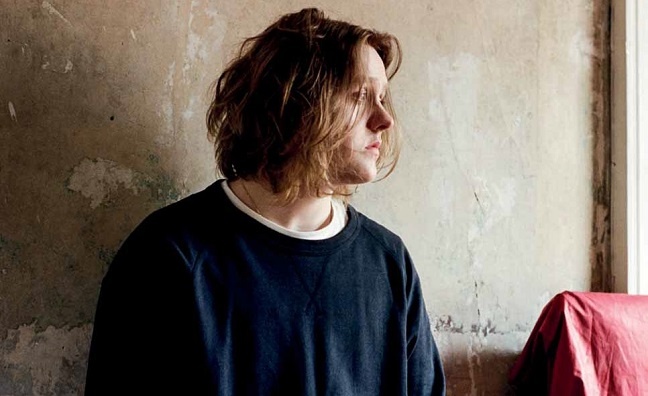In the latest issue of Music Week, we crunch the numbers to look at the link between airplay and streaming.
Traditionally, radio was the platform that generated hit singles, and playlisting at radio still remains a key element of an artist campaign. Virgin EMI artist Lewis Capaldi was both No.1 on the airplay and singles charts last year with Someone You Loved.
But Music Week research drawing on 2019 data from Radiomonitor and the Official Charts Company shows that a minority of the biggest airplay hits went on to be the year’s streaming smashes. You can read the full story in the latest issue.
Here, senior promotions execs explain why radio still matters in the streaming era…
There's now a clear distinction between streaming hits and airplay hits. Why is this?
Bruno Morelli, Virgin EMI promotions director: “There are great examples where radio play is aligned with streaming, and some that are not. Hits these days can be discovered in many ways virally and globally, which can lead to stations occasionally not leading the charge on some records but catching up slightly later. In a perfect world, you want to end up with both. The ability for UK radio to recognise talent and potential at an early stage, and champion [artists] without the relevant metrics, is an essential role, if not the most important. It provides them with an opportunity to have ownership of a campaign and be part of the narrative at the start. Artists love hearing their music on the radio – that has never changed and never will.”
Christian Nockall, Your Army director of promotions and business development: “By providing radio programmers with compelling data, we can give them the confidence to back records. We had that with Major Lazer’s Lean On in 2015 when streaming was starting to explode. UK radio felt it was a specialist record at first. It started to stream massively in a couple of territories, so we presented the data, they could see it was starting to happen and they had to get behind it.”
Steve Pitron, SVP, Island Records & promotions: “Radio and streaming hits can exist separately, but the goal is always to have them occupy the same space. Streaming platforms have the ability to react to their audience’s consumption outside of an impact date. Whereas a radio campaign is, for the most part, built around a shorter timeframe and always working up to an impact date. Streaming platforms have the freedom to support an infinite number of tracks, whereas radio stations only have a limited number of spaces on their playlists on any given week. So fewer radio hits can be created in any given year. And some consideration must also be given to the BBC’s commitment to support new British talent, and not just across radio.”
Artists love hearing their music on the radio – that has never changed and never will
Bruno Morelli
Why is radio still important for artists in 2020 – can it still deliver a hit?
SP: “Radio is still massively important to us. In most cases, you see an instant reaction to radio plays from analysing Streaming data, Shazam spikes and OCC sales following the play. Radio delivers a tangible and often immediate result. We are then able to utilise this data to highlight growth and consumption to encourage radio stations to increase their support. The Weeknd’s massive single Blinding Lights is his first ever airplay No.1. There is huge excitement around us achieving this and not just coming from the UK – the impact is global.”
CN: “Every artist we work with – from global superstars to unsigned acts – wants to be heard on the radio. It feels tangible and has the human element – that connection between the music and an engaged audience. The endorsement of a tastemaker still really resonates with artists and music fans. Also, certain artists and genres can sometimes find they don’t fit within the streaming format and radio can drive their career. I think to have a genuine ‘hit’ you need both radio and streaming to complement each other and work together. That’s how we all break more artists.”
BM: “Radio is crucial. As well as providing and introducing new music, DJ’s can enthuse, create context and generate passion for the artists. It is very much a pop-focused medium, but pop music is a very broad church these days that encompasses different genres. So if it’s popular, it’s pop.”
How can radio do more for UK rap, seeing as streaming hits by Stormzy, Dave and AJ Tracey were not as strong or even present on airplay top 100?
SP: “Currently, you are always going to struggle to get some artists away at commercial radio in particular, and those stations contribute massively to airplay positions. Even someone like Post Malone has only just enjoyed his first No.1 airplay hit with his most recent single Circles, which comes three albums into his career. This track is his most commercial track to date.”
CN:“The emergence of UK rap has been a musical revolution and it’s now the soundtrack of British youth. It would be great to hear more regional and commercial radio support for that, to keep younger and new audiences engaged in radio. There has been some amazing support though. 1Xtra has been leading the charge for years, Capital Xtra’s made impressive RAJAR gains and, personally from working with Dave, Radio 1 and Kiss’ support has been phenomenal.”
To read the Music Week research on streaming and airplay pick up the latest issue – or subscribers can click here.
To subscribe and never miss a big industry story, click here.









